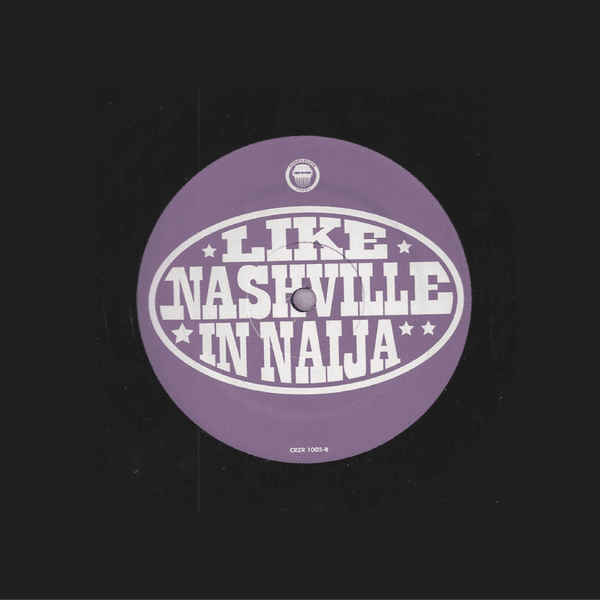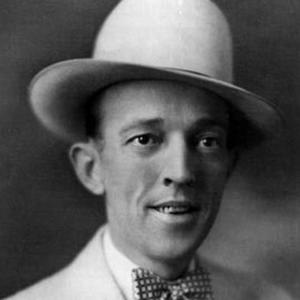




Link copied

Country music in Nigeria begins the way it pretty much begins everywhere – with the blue yodel of Jimmie Rodgers. The Singing Brakeman was country music’s first international superstar; when his music first found its way over from America to the West African nation in the 1930s and 1940s - just like it found its way all across the world – it began an unlikely long-distance romance that’s still going strong, nearly a century on.
Yet it wasn’t until the 1950s that country music really started to make waves in Nigeria. Boosted by the arrival of American Christian missionaries from the south, foreign miners and by Nigerian expatriates returning home - especially the soldiers who had fought alongside US allies in the Korean War. The country records that were brought back, particularly Chet Atkins and the Nashville Sound, were what Nigerian listeners were drawn to - by the 1960s country music was embedded into Nigerian music culture.
One country music icon who has had a remarkable longevity in Nigeria is the soft voiced, fireside favourite Jim Reeves. The all-American country crooner, with his Galaxy smooth baritone and string-soaked country, epitomised the sound. Ever-present in all British charity shop vinyl-sections – Reeves is still hugely revered in Nigeria, despite being derided more often as easy listening in country music at large. Long after his death in a plane crash in 1964 and his popularity waned, his label continued to press and release his records and cassettes for a Nigerian audience.
The nationwide spread of country music is, however, mostly down to Don Williams, who along with Jim Reeves is probably the most popular country singer in Nigeria. Mainly because in the 1970s EMI - Don Williams’ label at the time - had a radio station in Nigeria, making his music readily available to everyone.
The smooth Nashville Sound – with its soft sweeping strings, pedal steel and richly layered backing vocals - combined with country’s southern Christian morality – was the sound that Nigerian audiences took to their hearts, it connected spiritually with an audience rooted in a deeply religious country. As the musicologist and writer Uchenna Ikonne – expert on Nigerian music culture and curator of Who Is William Onyeabor? And Wake Up You! The Rise and Fall of Nigerian Rock- explained in an interview with Afro Pop Worldwide, “it wasn't really music that appealed to the body, it was perceived as something that appealed more to the soul.”
Nigerian audiences haven’t traditionally recognized country music as a separate standalone genre. Initially integrating it in with the Western pop segments on the radio, it was eventually grouped under the more general “Sentimental Music”, along with easy-listening pop artists of the 1950s like The Andrew Sisters, Nat King Cole and Louis Armstrong. ‘”Sentimental Music” was generally was used to categorise Western music that wasn’t dance music.
Uchenna Ikonne explains that, “what was considered pop music in the West was very melodic and usually a bit sentimental, which differed from rhythmic music… that was jazz and other music of that kind. The very richly melodic music was often called sentimental.” Going on to explain that the genres weren’t divided on the basis of race and ethnicity. "You know, Africans tend not to have the same concepts of racial dynamics that we do in the States.” Ikonne states, “there is an awareness of it, but at the same time it does not come into play in the exact same way. Often times race tends to be perceived more as culture. So someone like Nat King Cole, despite the fact that he is a black man, was still considered to be white music because he comes from the land of the white people. So country music was not perceived as white music, at least not more so than jazz was, or any other kind of Western music."
Interestingly, of all the sentimental music from the 1960s that garnered popularity in Nigeria, it’s been the music of Jim Reeves that has somehow endured. Reeves’ smooth vocal style can be heard in Nigerian singers like Bongos Ikwue - one of the earliest Nigerian musicians to incorporate elements of country into his soulful jazz funk sound – Chief Stephen Osita Osadebe, the king of highlife music and outsider electro-gospel experimenter William Onyeabor. Ikonne explains its far-reaching influence simply; “It's Sunday morning music. Everybody has it in their house and they listen to it on Sunday morning, when you're cleaning the house, getting ready to go to church or preparing lunch, everyone listens to Jim Reeves and Don Williams.”
In recent years, country music’s popularity in cities like Lagos and Abuja has unarguably dwindled, but in the Middle Belt states in Nigeria – interestingly the same states that the Christian missionaries first brought country music to in the 1950s – it’s continued to be popular, especially in Zaria and in Plateau, whose state capital Jos has been described as “Nigeria’s home of country music”. It’s been helped by the long running radio show Best of Country on Peace 90.5FM – still the biggest country music radio show in Nigeria - and DJs turned singers like John Kutcheti and Steve Rwang Pam.
Despite its popularity however - and the voracious appetite of Nigerian audiences for American country music - relatively few Nigerian singers have fully committed to performing country music. The few that did - mostly in the 1970s and 1980s – adopted a non-purist approach and DIY ethos, providing some of the most experimental arrangements ever brought to country music - as it was reimagined through the lens of West African pop culture. A lot of these singers are collected on the 2017 compilation Like Nashville in Naija: Nigeria’s Romance with Country Music Yesterday and Today, curated by Uchenna Ikonne himself - released on his own Comb and Razor Sound label.
You can hear echoes of Kenny Rogers and Jimmy Buffett in Emma Ogosi’s It’s Not Easy from 1982, with its bubbling bass lines and lo-fi pacific reggae percussion. One of the pioneers of country music in Nigeria, he broke through with Nobody Knows in 1981 - an album of country disco bangers that was one of the most exciting things to come from country music in the early eighties. The same can be said for Rennie Cotton Heart’s ‘No More Love In This Town’ - with its synthesizer-flute lead, it broke a lot more ground in country than any artists back in Nashville did in 1983. Poor Charley Akaa’s Don’t Cry EP from 1983 is some of the sweetest and most heart-breaking country-soul ever made, and there is more than a hint of Don Williams in Actor Alile’s whisper-in-your-ear delivery on his Shine On EP from the same year.
Along with Kutcheti and Rwang Pam, Ogak Jay Oke is one of the most passionate exponents of contemporary country music in Nigeria. As President of the Country Music Club of Port Harcourt, he leads an organisation whose mission is to simply promote country music and build friendship. His debut single from 2015, ‘My Little Angel’, begins like a Garth Brooks big-weeper, before ending up bouncing along on a breezy Bontempi country beat. Meanwhile Fred Donn’s ‘Lidina Lole’ – another inclusion on the Like Nashville In Naija compilation – is one of the most refreshingly bonkers takes on country music in recent years.
As the origins of country music are intertwined within black and white culture in the American South in the 1920s – in “the rub”, as it’s known, between white Europeans and African slave ancestors – it’s not surprising that it’s undergoing a refreshing reinvention in Nigeria. Its main musical elements after all are the banjo - which was brought to America by African slaves - and the fiddle - passed down from Irish and Scottish immigrants. So ironically, by gaining popularity in Nigeria – a country that had 3.5million people shipped to slavery in America – country music is coming back to where it all began.





